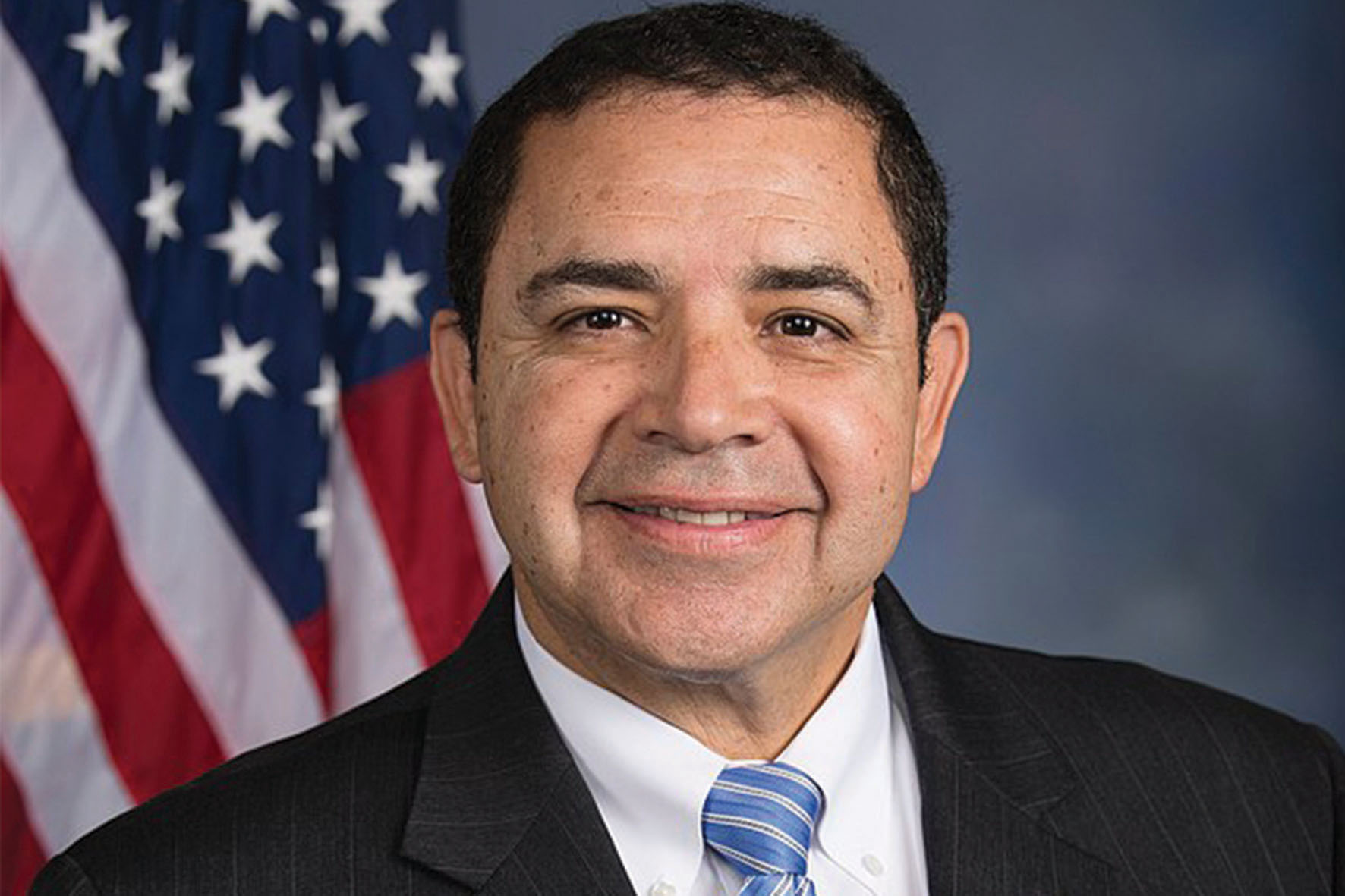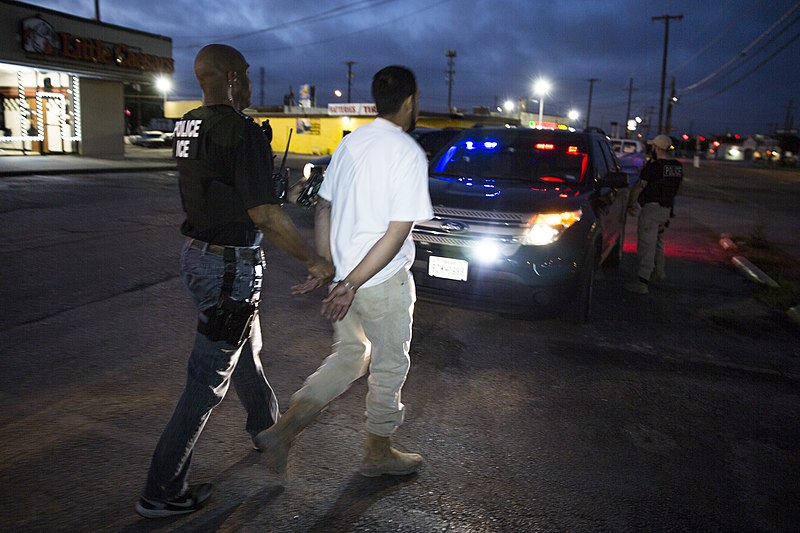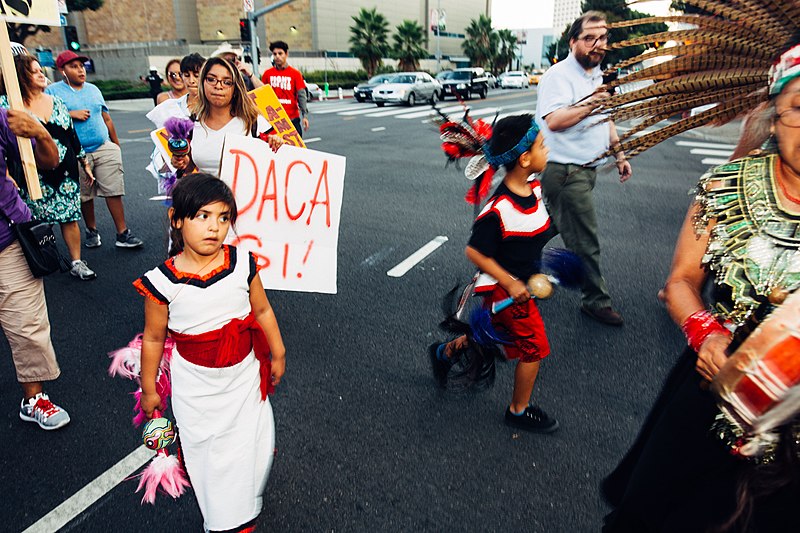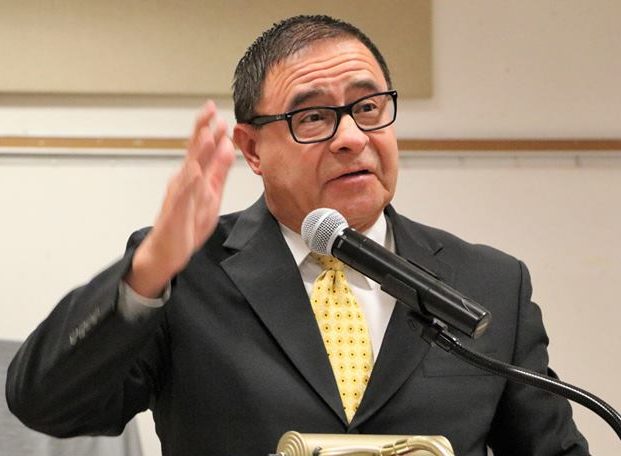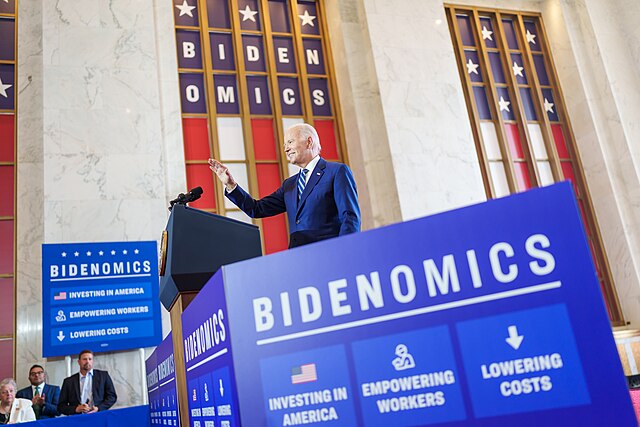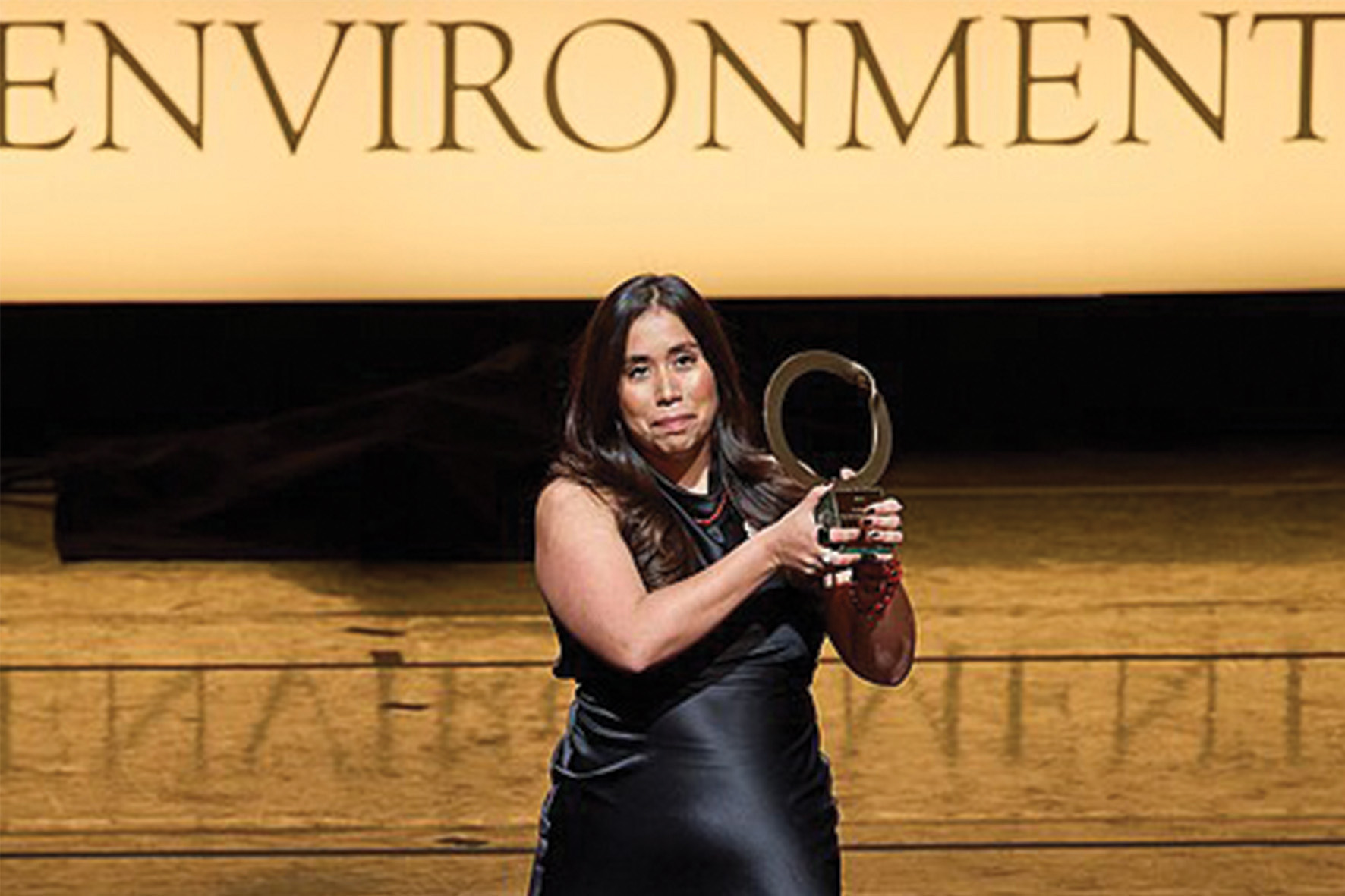In the last two weeks of June, the United States Supreme Court decided on several issues that profoundly affect American society. On June 23, it ruled in favor of New York State gun owners to carry them in public and indoors in the
"New York State Rifle & Pistol Assn., Inc. v. Bruen". On June 24, it adopted the most controversial measure, as it ruled in favor of the Mississippi Department of Health in the case "Dobbs v. Jackson Women's Health Organization," which challenged the 1973 decision that allowed legal abortion in every state in the country, the well-known
Wade v. Roe. On June 30, two equally controversial decisions were announced. The first, "Biden vs. Texas”, ruled that the Government's termination of the Migrant Protection Protocols did not violate section 1225 of the Immigration and Nationality Act, putting an end the policy known as "Remain in Mexico" for
asylum seekers in the United States. In the second, "West Virginia v. EPA", the Supreme Court stripped the Environmental Protection Agency (EPA) of authority to define policies to limit pollutant emissions, such as the one the EPA adopted in the
Clean Energy Plan. In the balance of the four definitions, Biden administration suffered three defeats and had only one success. The Supreme Court's decisions have a far-reaching impact on the population of the United States but have specific repercussions on the Latin American community in the country, as discussed below.
“New York State Rifle & Pistol Assn., Inc. v. Bruen”: the right to bear arms in public
The Supreme Court decision striking down a New York state law imposing restrictions on the public carrying of guns that was enacted more than a century ago marks a turning point in the expansion of gun rights in the United States in a decade. According to
CNN, Judge Clarence Thomaz, in defending his opinion, said that “going forward the government may not simply posit that the regulation promotes and important interest. Only if a firearm regulation is consistent with this Nation's historical tradition may a court conclude that the individual's conduct falls outside the Second Amendment's unqualified command,”.
Restricting the sale and possession of firearms is a very controversial topic in the United States. In April, the
Pew Research Center released a survey that shows the great division among the country's citizens: “In an era marked by deep divisions between Republicans and Democrats, few issues are as politically polarizing as gun policy. Today, just over half of Americans (53%) say gun laws should be stricter than they currently are, a view held by 81% of Democrats and Democratic-leaning independents but just 20% of Republicans and Republican leaders. Similarly, while nearly three-quarters of Democrats (73%) say making it harder to legally obtain guns would lead to fewer mass shootings, only 20% of Republicans say this, with most (65%) saying this would have no effect.”
It is essential to mention that American society has been shaken by successive mass shootings that result in deaths across the country. The Hispanic/Latino community is still shocked by the May 24, 2022 massacre in Uvalde, when 18-year-old Salvador Ramos opened fire at Robb Elementary School in Uvalde, Texas, and 21 people were killed. Of those shot dead, 19 were children and two adults, all Latin descents. Other minority groups such as blacks and Jews were also victims of attacks, such as the one in Buffalo in May this year and a shooting at a Synagogue in Pittsburgh in 2018. Gun attacks are becoming an epidemic in the United States. According to the
“Gun Violence Archive” portal, there were 692 mass shootings in 2021. As of the beginning of July 2022, more than 300 events have taken place, including the two verified July 4th holiday massacres in Illinois and Philadelphia.
For half the population (Democrats), the incidents occur because of the indiscriminate access to weapons, especially assault rifles, indicated for war combats. The other half associates violence with the behavior of individuals since the right to own weapons dates back to the 18th century, and events like those did not occur until recent times. The moment the Biden administration passed bipartisan legislation to control the sale of assault weapons, the Supreme Court's decision to allow the carrying of firearms in public and indoors fell like a bucket of cold water on those seeking to control the shooting epidemic.
“West Virginia v. EPA”
The Latino Observatory addressed the impacts of climate change and environmental
degradation on Latino communities on February 6, 2022. At that time, we drew attention to how climate change was especially damaging to states home to many Latinos, such as California, New Mexico, Texas, Arizona, and Florida. These populations' daily life and economic activities are being impacted by prolonged droughts, forest fires, hurricanes, air pollution, etc. Because of this, the environmental issue is vital to the Latino community. The news of the overturning of a federal rule provided for in the Clean Energy Plan (CPP) aimed at mitigating CO² emissions and supporting clean energy sources caused great disappointment.
During the Obama administration, the CPP was proposed by the EPA in 2015. Among the provisions, the CPP included regulations on the operation of power generation plants, particularly those powered by coal, to implement emission reduction technology and encourage clean energy sources such as solar and wind.
This measure was against the interests of companies and states producing coal and oil. Since its publication, the CCP rule has been challenged, alleging that the EPA did not have the legitimacy to regulate the thermoelectric plants. Since then, the rule did not go into effect because of legal actions filed by companies and states. The case reached the Supreme Court on the initiative of the state of West Virginia, the second-largest coal producer behind Wyoming. It is worth noting that the environmental plan proposed by Biden within the Build Back Better World (B3W) initiative had its approval blocked in the Senate with the decisive vote of Joe Manchin, a Democrat from West Virginia. The June 30 Supreme Court decision indicated that the EPA could not regulate existing thermoelectric plants, as Congress has not granted it this prerogative.
States that have specific legislation to control CO² emissions will not be affected. However, this Supreme Court decision makes a global strategy unfeasible for the United States to fulfill its commitments under the Paris Agreement.
Regarding the Supreme Court's position, it is worth quoting California Attorney General Rob Bonta, who classified the decision as
“misguided and gravely disappointing.”. According to Bonta, “We are running out of time in the fight against climate change, and we need all levels of government working together to take action before it’s too late. In California, we have strong programs in place to address climate change, and we will not go backwards. With the future of our planet at stake, our commitment to tackling the climate crisis cannot waver.”
The President of the Congressional Hispanic Caucus,
Raul Ruiz, stated on the topic: “Today’s decision by right-wing justices on the Supreme Court halts years of progress toward cleaner air and responding to climate change. The right-wing Supreme Court decision to curb the EPA’s authority to regulate carbon emissions from power plants will disproportionately harm underserved communities. It will make the air our kids breathe dirtier and increase asthma rates in our communities. Our planet cannot wait. Our communities cannot wait. Future generations cannot wait. The Congressional Hispanic Caucus (CHC) will continue to fight with urgency to pass environmental justice legislation that protects communities who already bear the brunt of climate change and rising greenhouse gas emissions."
“Biden v. Texas” – Remain in Mexico
The topic of the "Remain in Mexico" policy was addressed in our
Latino Observatory on December 8, 2021, when we mentioned the voters' frustration with the Biden administration face to his inaction in overcoming the restrictive measures on immigration created during the Donald Trump administration, among them the policy known as "Remain in Mexico." On August 24, 2021, the Supreme Court denied the Justice Department's emergency request to suspend a lower court decision requiring the administration to revert to the Trump-era immigration policy that forces asylum seekers to wait in Mexico for an audience in the United States. The Biden administration tried to circumvent this determination but was forced to reinstate the policy in early December last year.
This issue also caused tensions with the government of Mexico since many of the asylum seekers were citizens of the countries of the so-called "Northern Triangle of Central America," El Salvador, Honduras, and Guatemala, who were staying in precarious camps in border towns with the United States, such as Tijuana, Nuevo Laredo, Ciudad Juarez, Nogales, Sonora, etc.
The Supreme Court's decision meets part of the demands of the Latino/Hispanic community in the country, as another restrictive measure is still in force, the so-called Title 42, a health law enacted during World War II that restricted the movement of people intending to immigrate to prevent the disease's spread. This measure was widely used as a reason to expel illegal immigrants during the Covid-19 pandemic, although Trump was more concerned about immigration than the coronavirus. In April 2022, Biden administration tried to ease it but was blocked by the Supreme Court.
Advocates of more humane immigration applauded the Supreme Court's decision. The
Latino Rebels website listed some leaders who took to Twitter to commemorate the end of the "Remain in Mexico" policy, among them the deputy California Democrat Raúl Grijalva, who posted on Twitter that “SCOTUS’ decision to allow the Biden administration to end Remain in Mexico is a relief from the week of unprecedented cases, but this does not change the fact that thousands of migrants remain exposed to dangerous conditions as a result of this cruel policy”.
It is worth bearing in mind that this measure will tend to intensify tempers in the states bordering Mexico, such as Texas, Arizona, and New Mexico, where part of the population rejects any flexibility in immigration policy, including among residents of Latin origin. Republican Representative Mayra Flores managed to win San Antonio County in the June special election with a solid anti-immigration speech.
“Dobbs v. Jackson Women's Health Organization”: The right to abortion in question
Among the Supreme Court's June rulings, the one that has been most contested concerns the annulment of the right to abortion, as guaranteed in Wade v. Roe, 1973. Politicians linked to the Democratic Party regretted the decision. Republicans celebrated. The media groups split along their editorial lines. While CNN criticized the decision of six judges, Fox News extolled the courage of conservatives who knew how to resist pressure from organized groups.
Although controversial, most Americans support abortion rights. Research by the
Pew Research Center points out that 61% of the population supports the right to terminate a pregnancy, while 37% are against it. Republican-majority states concentrate most critics of this practice, while Democratic-majority states support the maintenance of the law.
According to
The New York Times, on June 27, states ruled by Republicans began greater activism to restrict abortion in the face of expectation, later confirmed, of the defeat of the Roe v. Wade. Florida, Oklahoma, Mississippi, Kentucky, and Texas, among others, are moving to further restrict women's choices after the Supreme Court's decision. In Florida, Florida Governor Ron DeSantis in June signed a law banning most abortions after 15 weeks of pregnancy, a fact that severely restricts access to the procedure.
In the opposite direction, the democratic states, such as California, Connecticut, and Washington-DC, are walking. In California specifically, a proposal launched in late 2021, supported by Governor Gavin Newsom and the leaders of both legislative chambers, proposes increasing funding for abortion providers, reducing administrative barriers to accessing abortions, and strengthening legal protections for patients who terminate a pregnancy.
Restriction on abortion impacts social classes and different ethnic groups differently. Again, according to Pew Research Center research, African-American and Latino/Hispanic women are more likely to use the procedure. According to 2019 data from 29 states and the District of Columbia collected by Centers for Disease Control and Prevention (CDC), the abortion rate between the ages of 15 to 44 was substantially higher among ethnic minority women. The rate among non-Hispanic black women was 23.8 abortions per 1,000; there were 11.7 abortions per 1,000 among Hispanic women; 6.6 abortions per 1,000 among non-Hispanic white women; and 13 abortions per 1,000 women of other races or ethnicities.
Specifically for Latino women living in states such as Florida and Texas, the restriction on abortion is seen as worrying, as they are in the groups with the lowest per capita income in those states and would not have the resources to move to states where the practice is allowed and, even less, to pay for the expensive procedures that characterize American medicine.
Concluding this analysis, the decisions of the Supreme Court of June, mostly conservative, are igniting progressive public opinion for fear that other public policies could be reversed, not just the right to abortion, the restriction on the carrying of weapons, or with regarding environmental legislation that addresses the impacts of climate change. They can advance on the separation of church and state, affirmative action policies, or even social assistance, such as Obamacare. Because of this, Democrats are exaggerating these decisions' impact and urging the population to mobilize and elect congress members committed to the rights of women, minorities, the environment, and in favor of welfare policies. In this aspect, it is important to cite
Joe Biden's comment regarding the Supreme Court's decision to end the rule "Roe v. Wade":
“Let me be very clear and unambiguous: The only way we can secure a woman’s right to choose and the balance that existed is for Congress to restore the protections of Roe v. Wade as federal law. No executive action from the President can do that. And if Congress, as it appears, lacks the vote — votes to do that now, voters need to make their voices heard. This fall, we must elect more senators and representatives who will codify a woman’s right to choose into federal law once again, elect more state leaders to protect this right at the local level. We need to restore the protections of Roe as law of the land. We need to elect officials who will do that. This fall, Roe is on the ballot. Personal freedoms are on the ballot. The right to privacy, liberty, equality, they’re all on the ballot. Until then, I will do all in my power to protect a woman’s right in states where they will face the consequences of today’s decision.”
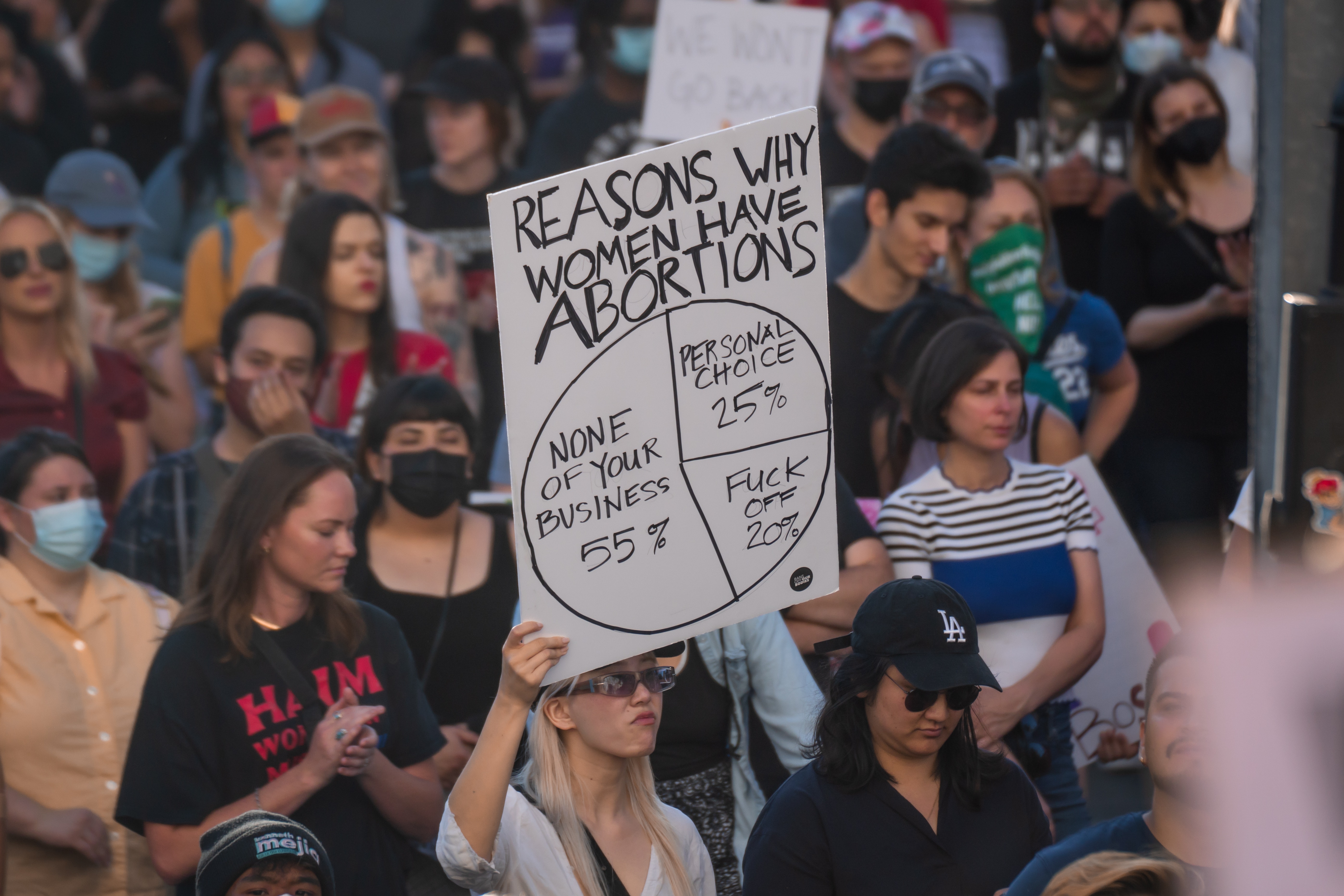 pexels.com
pexels.com
